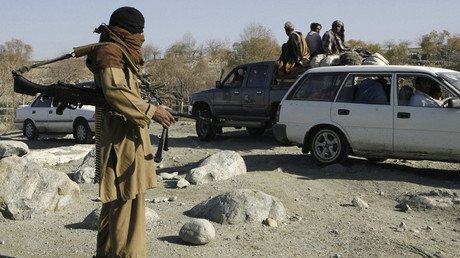‘Main US problem in Afghanistan is that people don’t want to accept occupation’
The Afghan people’s resistance to occupation is the main obstacle to what the US would call success there, said Richard Becker of the Answer Coalition, while Gordon Duff of Veterans Today says there’s little question US policy in Afghanistan is a failure.
Last week, US Defense Secretary James Mattis admitted the US’ failings in Afghanistan. This was followed by a Pentagon report to Congress that named Pakistan as “the single greatest external factor” hindering US actions. The report refers to what it calls the Pakistani government’s support for Afghan insurgents.
During its 16 years of its involvement in Afghanistan, the US has given a whole range of reasons for why its campaign there wasn’t going according to plan.
According to Richard Becker of the anti-war Answer coalition, “The problem that the US has in trying to carry out the occupation and subdue the population…The real answer here is – the US has to get out of Afghanistan.”
“They claim that they would have resolved everything and they would have won the war if only it wasn’t for Pakistan or something else. But they are always looking [for excuses] because they aren’t able to succeed,” he told RT.
However, in his view, “the resistance of all kinds of people inside Afghanistan to the occupation that is the main obstacle to what they call success.”
“They have a lot of problems. What’s going on in Pakistan is one of the problems, but, far and away, the problem that they have in a war that has lasted longer than any other US war in history – almost 16 years now – is the fact that Afghan people do not wish to accept occupation,” Becker said.
The analyst also says the US’ relationship with Pakistan is “one that has involved a great deal of deception over the years.”
“The Pakistani military is highly dependent on its relationship with the US military. The US military is also heavily dependent on its relationship with Pakistan in regard to the war in Afghanistan. What has really transpired over, and over, and over again is these drone attacks, which are violations of international law, and clearly violations of Pakistan sovereignty. Pakistan has denounced the drone attacks. So many civilians have been killed, and so much of the population has been terrorized. In reality, there is a kind of acceptance on the part of the Pakistan military that the US can do this, and then the Pakistani government can pretend to be angered by this and to denounce it. But it still goes on. And it could not continue to go on if the government of Pakistan really took a stand against it,” Becker added.
Islamabad decries US drone strikes amid reports Trump mulls more such ops in Pakistan https://t.co/R0DTE7bEWzpic.twitter.com/y4mRuoyBKY
— RT (@RT_com) June 22, 2017
Gordon Duff, senior editor at Veterans Today newspaper, also talked with RT about the results of years of US efforts in Afghanistan.
“It depends on what US efforts we’re talking about. We could be talking about the US effort to destabilize Pakistan. And Pakistan is a threat to that effort, because they’re resisting. It could be the US effort along with India to turn Afghanistan into a colony... [or] US effort to prevent the reunification of the Pashtun people, millions of whom are still in refugee camps in Pakistan. We could go on for some time,” he said.
In Duff’s opinion, “there is little question that US policy in Afghanistan is a failure.”
“You have a totally corrupt country. Frankly, the [Ashraf] Ghani regime controls the city of Kabul only – and that’s during the day, not so much at night. There is no country there. The rule in Afghanistan supported by the US is not only corrupt, but it is not a general rule of the majority of the Afghan people, who are Pashtun. There is not a Pashtun voice in the Kabul government,” he told RT.
Regarding the issue with Pakistan, he said that “the US has long interfered in the internal politics of Pakistan... and the Pakistani army has from time to time been… subservient to the Pentagon.”
“That effort may be less clear now that Pakistan is less willing to follow the US lead by reinforcing Saudi Arabia and is threatening to take an independent role in the attempt by the US and Saudi Arabia to crash Qatar. I believe that is more of what we’re looking at right now,” Duff said.
The statements, views and opinions expressed in this column are solely those of the author and do not necessarily represent those of RT.













